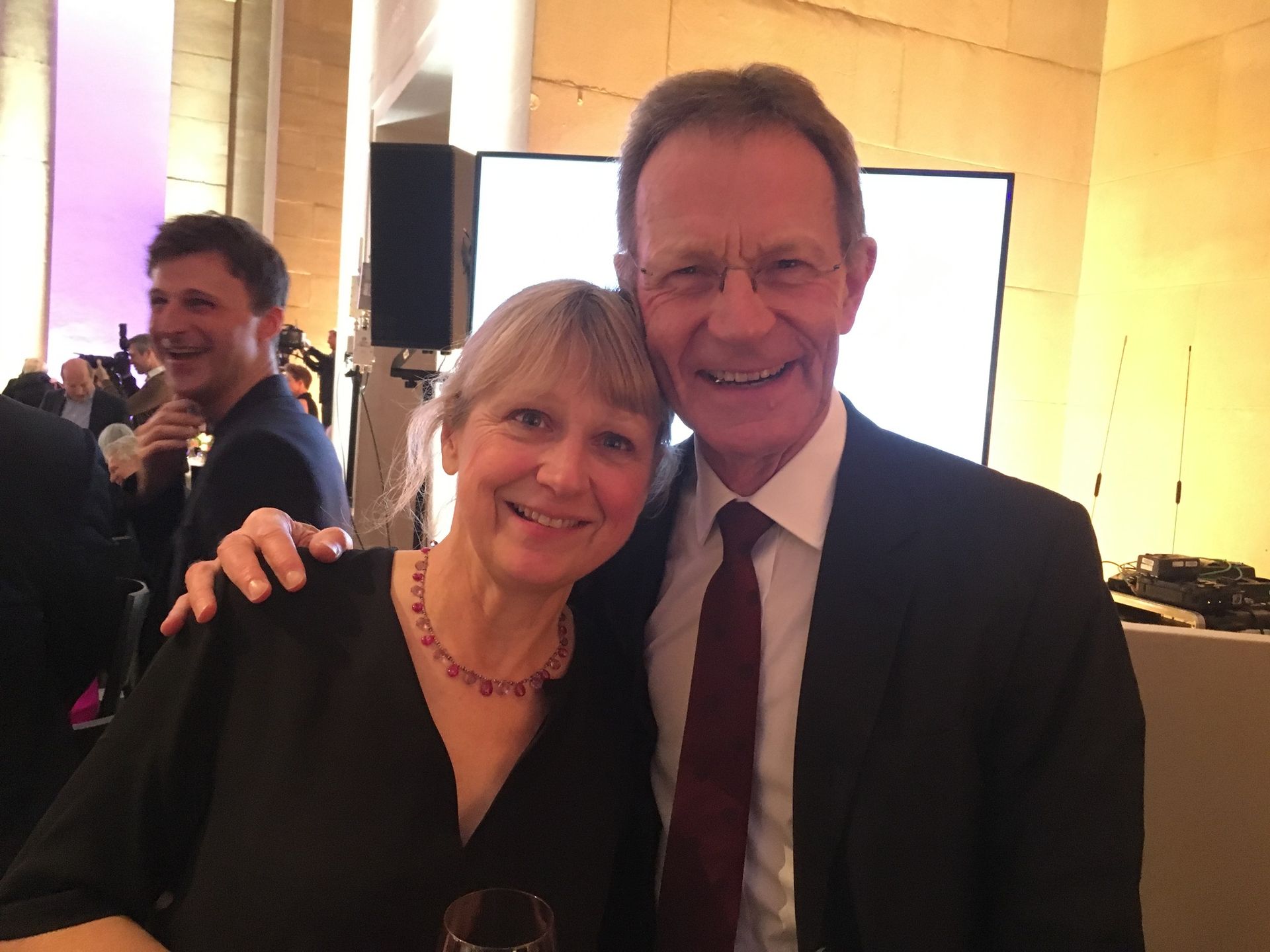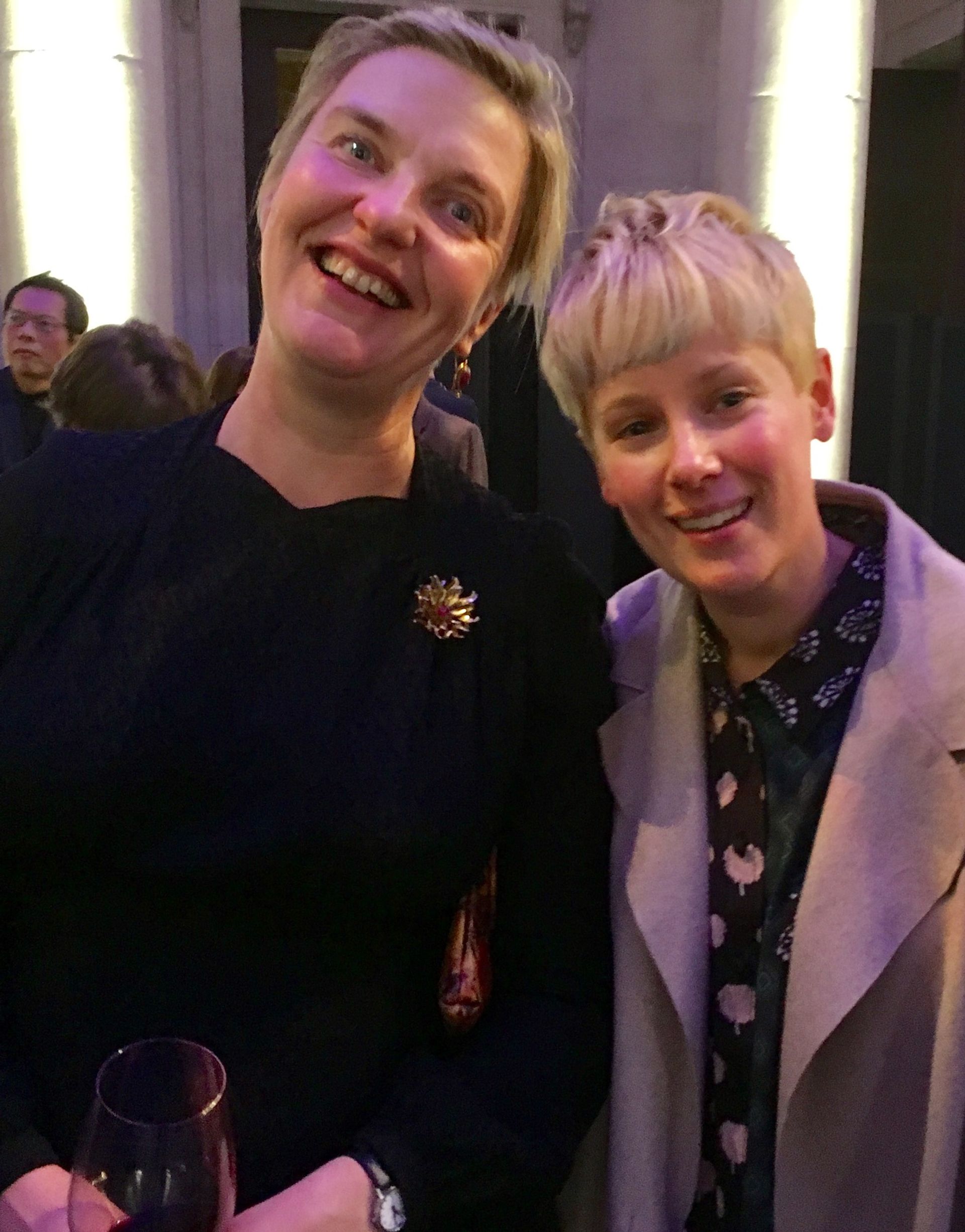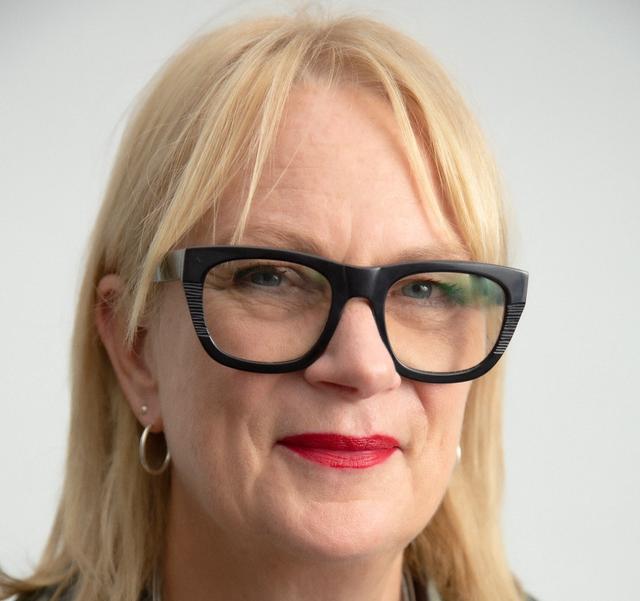A combination of a strong shortlist, the return to Tate Britain, and the fact that this was the last year that Nicholas Serota would be presiding over the proceedings, meant that right from the start, last night’s (5 December) Turner Prize dinner and awards ceremony had a very special atmosphere. The sense that creativity, diversity and freedom of speech appears to be increasingly under threat both at home and abroad was also a key factor in making what was ostensibly the presentation of an art prize seem more like a clan gathering and gesture of solidarity from the massed ranks of art worlders.
Serota certainly expressed current preoccupations when he opened his speech by pointedly citing the Turner Prize as an emblem of openness and diversity. He then took full advantage of the fact that the awards were being streamed live on BBC News to declare that the arts have become “part of our reputation and even our DNA as a nation” and should be cherished as such. Amidst widespread applause, the outgoing director of Tate urged everyone present to ensure that the arts and humanities should not be “pushed to the margins” but continue to play a central part in all aspects of our education: whether schools, art schools or universities, as “creativity is the key to our future in every sphere of life”.

Presenting the prize was the poet and novelist Ben Okri, who seems to have become a regular art world fixture in recent months. Before he opened the envelope, Okri attracted more applause by paying fulsome tribute to Serota as “one of the greatest artistic catalysts in this country” who has “guided not only Tate but the art spirit of this nation through astonishing times”. (When, from the sidelines Sir Nick jokingly declared that Okri had departed from the script—the poet’s response was that “we are artists, we break the script!”)
Mr Okri then also used the podium for an eloquent outpouring on the universal importance of the arts, for nations as well as for individuals, stating that “art is the biggest country in the world…which keeps no one out and excludes nobody”.
Finally, he announced Helen Marten to be this year’s prize winner, rounding off an extraordinary year for the 31-year-old artist who was also the winner of the inaugural Hepworth Prize for Sculpture, as well as having a widely acclaimed solo show at the Serpentine Sackler Gallery. In keeping with the general anxiety about the times in which we are living, a visibly moved Marten also referred to “a global outlook that was becoming evermore precarious” from “the stripping of arts and creative writing programmes from school syllabuses, to the prevalence of alt-right groups gaining a very visible and frightening political platform”. She then also rose to the collegiate theme by pointing out that all of us gathered throng were “deeply, deeply privileged to be sitting here with a community whose life-blood is in diversity and exuberance” and fulsomely praising her fellow shortlisters.

This time she did not announce it publically, but it later emerged that, as she had done with the Hepworth Prize, Marten intends to share the prize money with her fellow nominees. All in all, an affirming evening, and a tribute to the power of art and to the strength of the communities it attracts. But whether Marten and Theaster Gates before her—who shared his Artes Mundi Prize last year—have set a precedent for all future arts prize-winners dividing up their rewards, remains to be seen.


